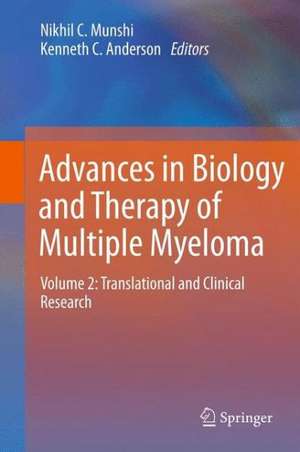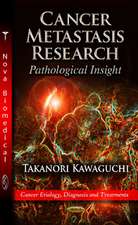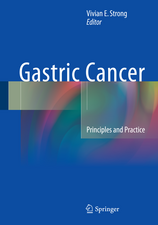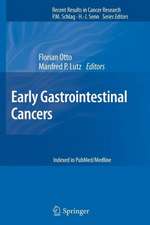Advances in Biology and Therapy of Multiple Myeloma: Volume 2: Translational and Clinical Research
Editat de Nikhil C. Munshi, Kenneth C. Andersonen Limba Engleză Hardback – 5 dec 2012
| Toate formatele și edițiile | Preț | Express |
|---|---|---|
| Paperback (2) | 1094.44 lei 6-8 săpt. | |
| Springer – 27 ian 2015 | 1094.44 lei 6-8 săpt. | |
| Springer – 12 dec 2014 | 1096.25 lei 6-8 săpt. | |
| Hardback (2) | 1101.21 lei 6-8 săpt. | |
| Springer – 14 noi 2012 | 1101.21 lei 6-8 săpt. | |
| Springer – 5 dec 2012 | 1103.03 lei 6-8 săpt. |
Preț: 1103.03 lei
Preț vechi: 1161.08 lei
-5% Nou
Puncte Express: 1655
Preț estimativ în valută:
211.09€ • 218.07$ • 175.68£
211.09€ • 218.07$ • 175.68£
Carte tipărită la comandă
Livrare economică 25 martie-08 aprilie
Preluare comenzi: 021 569.72.76
Specificații
ISBN-13: 9781461452591
ISBN-10: 1461452597
Pagini: 300
Ilustrații: X, 290 p.
Dimensiuni: 155 x 235 x 22 mm
Greutate: 0.64 kg
Ediția:2013
Editura: Springer
Colecția Springer
Locul publicării:New York, NY, United States
ISBN-10: 1461452597
Pagini: 300
Ilustrații: X, 290 p.
Dimensiuni: 155 x 235 x 22 mm
Greutate: 0.64 kg
Ediția:2013
Editura: Springer
Colecția Springer
Locul publicării:New York, NY, United States
Public țintă
ResearchCuprins
T cell responses in myeloma.- Novel antigenic targets for immunotherapy in myeloma.- Antibody-based therapies in Multiple Myeloma.- Defining multiple myeloma as a target for DNA gene fusion vaccines.- Harnessing allogeneic immunity for anti-myeloma response.- Dendritic cell and peptide-based vaccination in myeloma.- New Proteasome inhibitors.- Newer Imids.- New agents in myeloma.- Early Combination Studies in MM.- The effect of novel antimyeloma agents on bone metabolism.- Index.
Textul de pe ultima copertă
Despite the advances in conventional, and novel agent and high dose chemotherapy, multiple myeloma remains incurable. In order to overcome resistance to current therapies and improve patient outcome, novel biologically-based treatment approaches are being developed. Current translational research in multiple myeloma focusing on the development of molecularly-based novel targeted single-agent and combination therapies has great promise to achieve high frequency and durable responses in the majority of patients.
This volume will focus on biology of multiple myeloma, especially on oncogenomic changes, cell signaling pathways and intermediate molecules that are being investigated for development of novel therapies. The book will present newer developments, providing an emphasis on basic science, as well as its significant clinical impact.
This volume will focus on biology of multiple myeloma, especially on oncogenomic changes, cell signaling pathways and intermediate molecules that are being investigated for development of novel therapies. The book will present newer developments, providing an emphasis on basic science, as well as its significant clinical impact.
Caracteristici
Focuses on biology of MM especially, oncogenomic changes, cell signaling pathways and intermediate molecules that are being investigated for development of novel therapies
Explores all clinically important targets including those which have either therapeutic or prognostic significance
Provides perspective on new developments and information with emphasis both on basic science as well as its clinical impact
Includes supplementary material: sn.pub/extras
Explores all clinically important targets including those which have either therapeutic or prognostic significance
Provides perspective on new developments and information with emphasis both on basic science as well as its clinical impact
Includes supplementary material: sn.pub/extras









